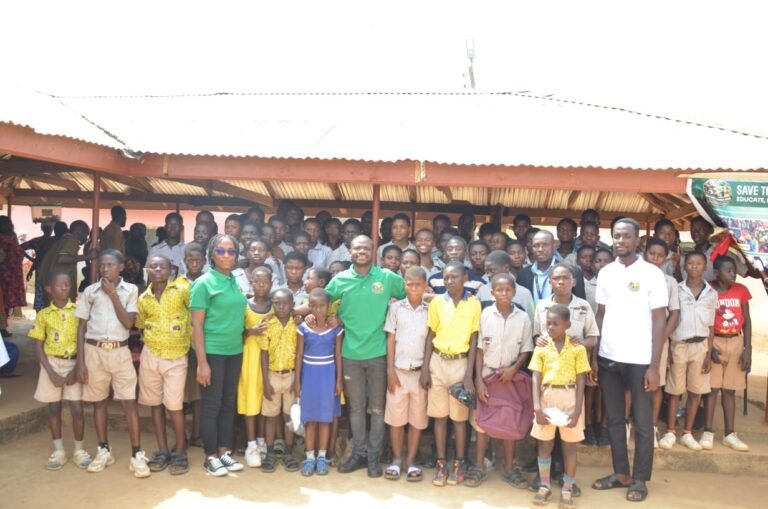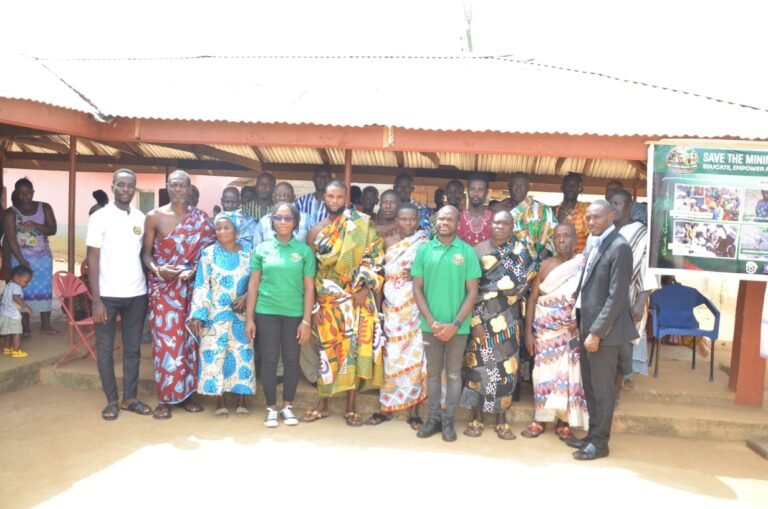
By Isabella Agyakwa
A new Labour Bill 2024 has been developed to consolidate the gains made by the Labour Act, 2003 (Act 651), the Minister of Employment, Labour Relations and Pensions, Ignatius Baffuor Awuah, has announced.
If approved by Cabinet and subsequently enacted by Parliament, the Bill will provide prohibited actions of private employment agencies, extend Maternity Leave by an additional two weeks, and introduce paternity leave as well as protect against violence and harassment at the workplace.
Addressing journalists at the Ministers Press Briefing organised by the Information Ministry yesterday in Accra, the Minister noted that although the current Labour Act had served the nation well, “the world of work has undergone dramatic changes to the extent that if care is not taken, the current labour law may soon not be fit-for-purpose.”
The Labour Act, 2003 (Act 651) was promulgated to regulate the world of work and to promote decent work standards.
Major provisions include the establishment of Public Employment Centres (PECs), regulation of activities of Private Employment Agencies (PEAs), employment of Persons with Disabilities (PWDs), and establishment of the National Labour Commission (NLC).
“After two decades of implementation of Act 651, there have been concerns expressed by social partners occasioned by the exercise of discretion in the interpretation of some aspects of the law, difficulty in implementing some aspects of the law, apparent disconnect with some relevant International Labour Standards (ILS), and provisions to respond to emerging issues in the world of work,” Mr Baffuor Awuah indicated.
Employment
On employment, the Minister disclosed that from 2017 to date, a total of 732,898 youth had benefited from various modules of the Youth Employment Agency (YEA) programme.
“The establishment of the Ghanaian-European Centre for Jobs, Migration and Development (GEC) has also enhanced opportunities for the provision of decent employment for job seekers; particularly young persons who have the intention of migrating outside Ghana for jobs or have returned from abroad for a variety of reasons,” he said.
According to him, between 2017 and 2023, job placements undertaken by the GEC, PECs and PEAs totalled 61,419. This comprised 44,138 males and 17,281 females.
In 2021, the Ministry developed the National Green Jobs Strategy to provide a framework for the promotion of green jobs in Ghana. From 2021 to July 2024, the Ministry has undertaken six regional sensitisations and one media training programme to promote the creation of green jobs. As a result, over 650 individuals from MMDAs and the informal sector have benefited from the sensitisation programmes. 50 media houses have also benefited from the Green Jobs regional sensitisation programmes.
“Data available to us indicates that, from 2021 to 2023, a total of 20,915 green jobs were created. This was in sectors including renewable energy, services, education, agriculture, waste management and recycling,” he said.
“In the coming months, the Ministry with the support of the ILO and SNV-Ghana will organise regional sensitisation programmes in the Bono, Bono East, Ahafo, Upper East, Upper West, North East, and Savannah Regions to promote the creation of green jobs and contribute to the protection of the environment,” the Minister added.
GLMIS
In addition to the aforementioned, the Minister announced the launch of the Ghana Labour Market Information System (GLMIS) database, aimed at improving job matching and service delivery for job seekers.
The new system, accessible online at [www.glmis.gov.gh](http://www.glmis.gov.gh), will serve as a primary interface for connecting job seekers with employers.
This initiative is part of the third component of the Ghana Jobs and Skills Project, which is funded by the World Bank. The project focuses on enhancing the capacity of the Labour Department to better coordinate the labour market and support skills development and job creation.
The Minister expressed confidence that the GLMIS would address issues such as job mismatch, unemployment, and under-employment. He highlighted that the system’s ability to generate timely labour market reports would enable the government to make more effective policy interventions.
“The Ministry of Employment and Labour Relations is spearheading Component 3 of this project, which is dedicated to boosting the effectiveness of the Labour Department and improving labour market coordination,” Mr Baffour Awuah stated.
The GLMIS platform will provide valuable data on in-demand skills, identify training and development needs, and assist employers in making informed hiring decisions. Employers can list job vacancies, while job seekers can upload their CVs for potential matches.
Additionally, the system aims to overcome the logistical and infrastructural challenges that have previously impeded the Labour Department’s ability to deliver efficient services.
“This project will significantly improve our capacity to address the challenges in the labour market and enhance the overall coordination between job seekers and employers,” he added
Mr Baffuor Awuah pledged the government’s commitment to rolling out new programmes to create employment and complement the delivery of public services.




